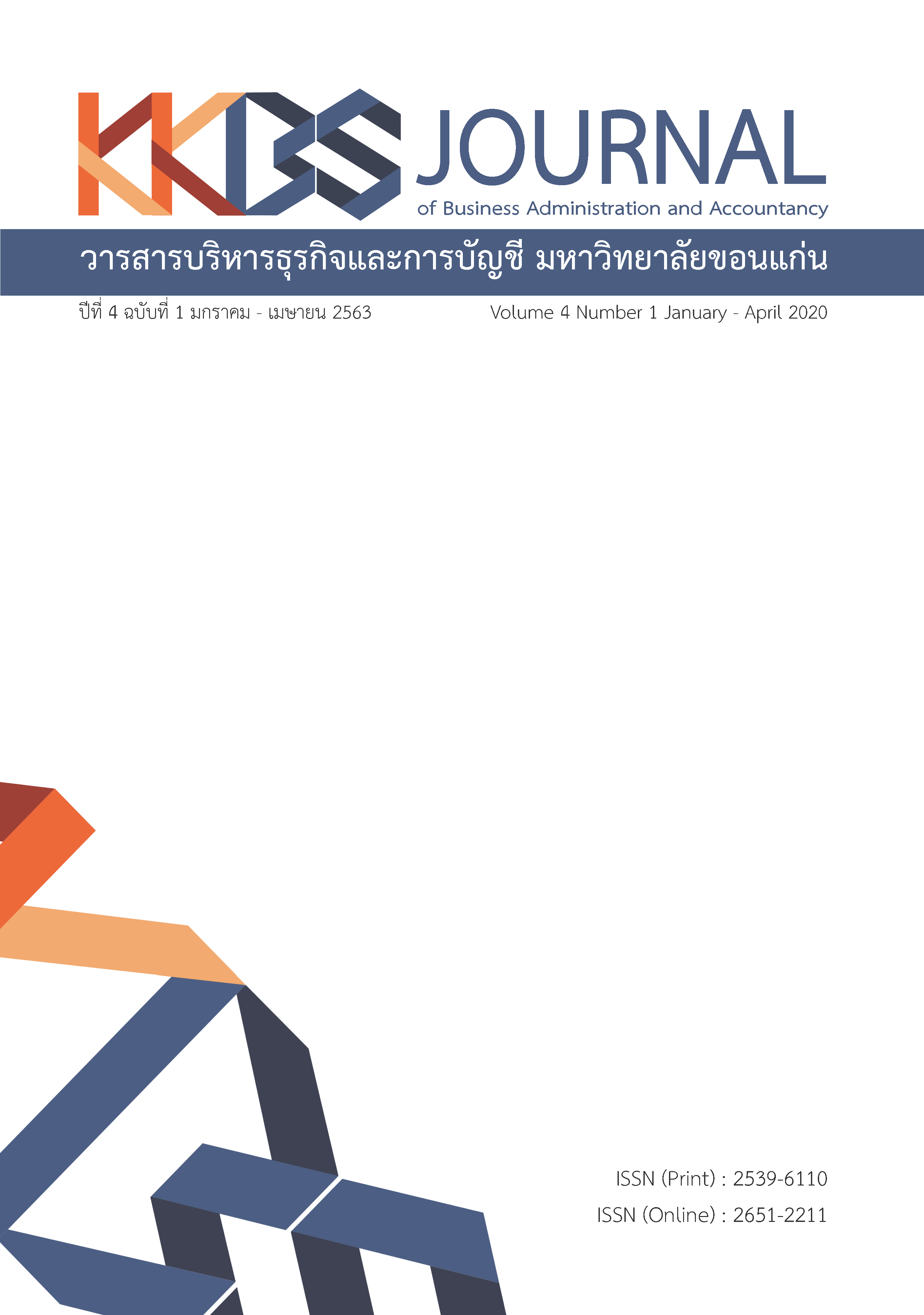Optimal Tourism Fee on Foreign Tourists in Thailand
Main Article Content
Abstract
The expansion of tourism sector can lead to positive effects and negative effects simultaneously. In order to cope with the negative effects, the tourism fee or tourism tax should be implemented. This paper aims to calculate the optimal level of tourism fee based on the concept of social welfare maximization. The results suggest that the optimal tourism fee rate lie between 0.3396 to 0.4501 percent. The optimal tourism fee range is 167.08 Baht to 221.14 Baht. The introduction of tourism fee will generate a net revenue of 7,465.17 billion Baht to 10,550.85 in next two years. It is recommended that (1) the allocation of net revenue from tourism fee be efficient to avoid the social welfare loss in the future and (2) other losses brought about by the implementation of tourism fee be accounted for as they may decrease its total revenue or make its collection unproductive.
Article Details
The articles published in the journals are the authors' opinions, not the opinion of the editorial team or administrative staff. The articles published is copyright of the Journal of Business Administration and Accounting, Khon Kaen University.
References
Bird, R.M. (1992). Taxing tourism in developing countries. Journal of World Development, 20(8), 1147-1161.
Borici-Kraja, Y. & Osmani, E. (2016). Management of the taxation on tourism operators, an important component of revenues and investments in the tourism sector. Academicus International Scientific Journal, 14, 126-135
Butler, R. (1980). The concept of a tourist area cycle of evolution: implications for management of resources. Canadian Geographer, 24(1), 5-12.
Briassoulis, H. (2002). Sustainable tourism and the question of the commons. Annals of Tourism Research, 29(4), 1065-1085.
Chaivichayachat, B. (2017). Demand for Thai tourism by major countries: determinants and stochastic simulation. International Journal of Economic Research, 14(6), 313-321.
Chaivichayachat, B. (2018). Demand for tourism in AEC with AIDS model. Advanced Science Letters, 24(12), 9465-9469.
Clarke, H.R. & Ng, Y.K. (1993). Tourism, economic welfare and efficient pricing. Annals of Tourism Research, 20(4), 613-632.
Coccossis, H. & Parpairis, A. (1995). Assessing the interaction between heritage, environment and tourism: Mykonos. In Coccossis, H. & Nijkamp, P. (eds.). Sustainable Tourism Development. (pp.107-125). London: Avebury Press.
Forsyth, P. et al. (2011). Tourism and taxes: Implications for the Australian Economy and the Tourism Industry of an increase in the passenger movement charge. In: Gross, M.J. (Ed). CAUTHE 2011: National Conference: Tourism: Creating a Brilliant Blend. (pp.1069-1073). Adelaide, S.A.: University of South Australia, School of Management.
Forsyth, P. & Dwyer, L. (2002). Market power and the taxation of domestic and international tourism. Tourism Economics, 8(4), 377-399.
Gooroochurn, N. & Sinclair, T. (2005). Economics of tourism taxation: evidence from Mauritius. Annals of Tourism Research, 32(2), 478-498.
Gössling, S., Peeters, P., Ceron, J. & Dubois, G. (2005). The eco-efficiency of tourism. Ecological Economics, 54(4), 417-434.
Jensen, T. & Wanhill, S. (2002). Tourism’s taxing times: value-added tax in Europe and Denmark. Tourism Management, 23(1), 67-79.
Pazienza, P. (2011). Should We Tax Tourism? Environmental Economics, 2(1), 8-16.
Pigou, A.C. (1920). The economics of welfare. London: Macmillan.
Piga, C.A.G. (2003). Pigovian taxation in touirism. Environmental and Resource Economics, 26(3), 343-359.
Serugin, C & Surugiu, M.R. (2018). The Impact of tourism taxation: Analysis for Romania. Journal of Tourism Studies and Research in Tourism, 24(3), 68-73.
Sheng, L. & Tsui, Y. (2009). Taxing tourism: enhancing or reducing welfare? Journal of Sustainable Tourism, 7(5), 627-635.
Song, H.Y. & Li., G. (2009). UK Tourism demand modelling and forecasting: a review of recent research. Tourism Management, 29(2), 203-220.
Song, H.Y., Witt, S.F. & Li, G. (2003). Modelling and forecasting the demand for Thai tourism. Tourism Economics, 9(4), 363-387.
Untong, A. & Kansa-Ard, M. (2011). An analysis of Thailand’s long-run tourism demand. Thammasat Economic Journal, 29(2), 1-34.


